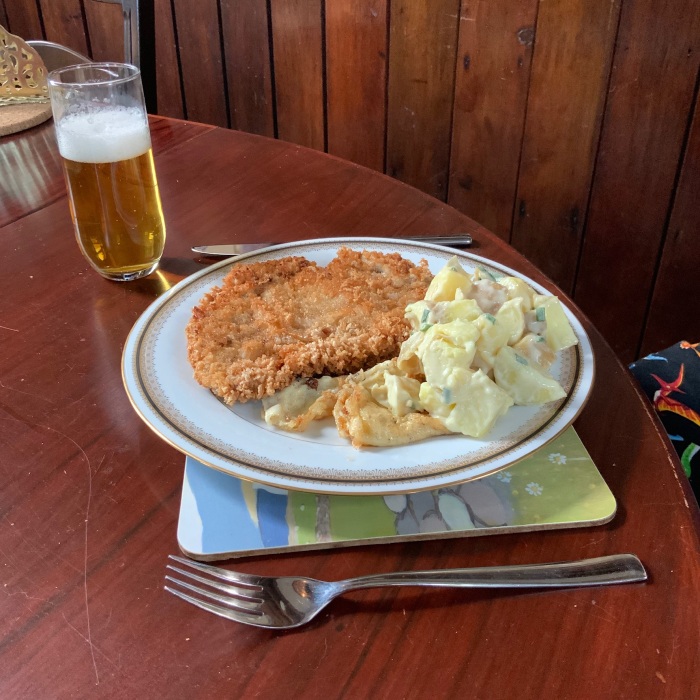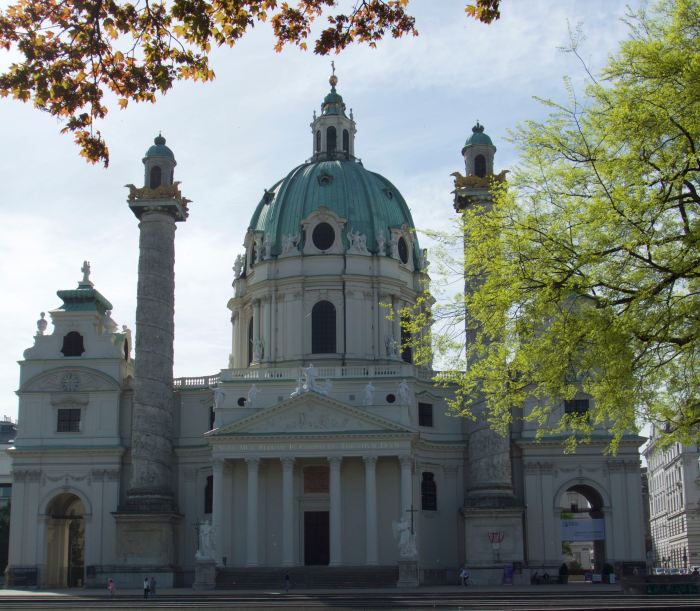Well.. that was a very different EGU!
We were supposed to be in Vienna, but that was all cancelled a while back of course. I might have felt sorry for my AirBnB host but despite Austria banning everything they didn’t reply to my communication and refused a refund so when AirBnB eventually (after a lot of ducking and weaving) stepped in and over-ruled them and gave me my money back I didn’t have much sympathy. They weren’t our usual host, who was already full when I booked a bit late this year.
Rather than the easy option of just cancelling the meeting, the EGU decided to put everything on-line. They didn’t arrange videoconferencing sessions – I think this was probably partly due to the short notice, and also to make everything as simple and accessible as possible to people who might not have had great home broadband or the ability to use streaming software – but instead we had on-line chat (typing) sessions with presentation material previously uploaded by authors, that we could refer to as we liked. There was no formal division into posters and oral presentations. Authors could put up whatever they wanted (50MB max) onto the website beforehand and people were free to download and browse through at will. It is all still up there and available to all permanently, and you can comment on individual presentations up to the end of the month (assuming the authors have allowed this, which most seem to). The EGU has posted this blog with statistics of attendance which shows it to have been an impressive success.
Some people put up huge presentations, far more than they would have managed in a 15 minute slot, but most were more reasonable and presented a short summary. We did poster format for ours as we felt that this allowed more space for text explanation and an easier browsing experience than a sequence of slides with bullet points. Unfortunately my personal program of sessions I had decided to attend has been deleted from the system so I can’t review what I saw in much detail. I usually take notes but this time was too busy with computer screens.
Of course, being in Vienna in spirit, I had to have a schnitzel. I might have to have some more in the future, they were rather good and quite easy to make. Pork fillet, not veal.

The 2nd portion at the end of the week was better as I made my own breadcrumbs rather than using up some ancient panko that was skulking in the back of the cupboard. But we ate them too quickly to take pictures! Figlmüller eat your heart out!
The chat sessions were a bit frenetic. Mostly, the convenors invited each author in turn to post a few sentences in summary, following which there was a short Q-and-A free-for all. This only allowed for about 5 mins per presentation, which meant maybe 2 or 3 questions. But this wasn’t quite as bad as it seems since it was easy to scroll through the uploaded material ahead of time and pick out the interesting ones. Questioning could also run over subsequent presentations, it wasn’t too hard to keep track of who was asking what if you made the effort. As usual, there were only handful of interesting presentations per session for me (at most) so it was easy enough to focus on these. It was also possible to be in several different chat sessions at once, which you can’t do so easily with physical presentations! The structure made it more feasible to focus on whatever piqued our interest, and jules in particular spent more time at those sessions she does not usually get around to attending because they are outside of her main focus. Some convenors grouped presentations into themes and discussed 3-5 of them at a time, for longer. Some naughty convenors thought they would be clever and organise videoconferencing sessions outside of the EGU system, which actually worked pretty well in practice for those (probably a large majority to be honest) who could access it, but not so good for those who had access blocked for a number of reasons. Which is probably why the EGU didn’t organise this themselves. Whether it is actually preferable to the on-line chat is a matter of taste.
Jules was co-convening a couple of sessions and the convenors set up a small zoom session on the side to help coordinate, which added to the fun. A bit of personal chat with colleagues is an important aspect of these conferences. Her presentation is here and outlines some early steps in some work we are currently doing – an update to our previous estimate of the LGM climate, which is now getting on for 10 years (and two PMIP/CMIP cycles) old. I think we should probably find it encouraging that the new models don’t seem very different, though it may just mean that they share the same faults! There is some new data, perhaps not as much as we had hoped. And the method itself could do with a little bit of improvement.
I had actually found it a bit difficult to find the right session for my work when originally submitting it. It didn’t seem to quite fit anywhere, but in the end it turned out fine where I put it. The data assimilation stuff was a little less interesting methodologically speaking, perhaps because it’s a sufficiently mature field that everyone is just getting on with the nuts and bolts of doing it rather than inventing new approaches. I did get one idea out of it that I may end up using though, and this from the Japanese looks absolutely incredible from a technological point of view – nowcasting cloudbursts over Tokyo with a 30 second update cycle! With the extra year they’ve now got, it will probably be operational for the Olympics.
Jules and I also co-authored Martin’s work with us on emergent paleoconstraints which we were originally going to present for him as he wasn’t planning to attend. But, with the remote attendance he ended up able to do it himself which was a small bonus.
Best of all – no coffee queues! Well that and not needing to schlep out at 8pm looking for dinner each night…which is fun but gets pretty tiring by the end of the week. On the downside, we had to buy our own lunches rather than gatecrashing freebies all week like we usually (try to) do.
As for the future…well it seems pretty embarrassing that it took current events into forcing the EGU into moving on-line. Some of us have been pushing them on this for years and it’s always been met with “it’s too complicated” by the powers that be. I suspect they mostly like the idea of being in charge of a huge event and enjoy hobnobbing at all the free dinners (don’t we all!) but that doesn’t justify forcing everyone to fly over there and spend at least €2k minimum – probably rather more for most – to take part. It’s a huge amount of time, money, and carbon and we really ought to do better. If one good thing is to come out of the current mess, it might be that people finally wake up to the idea that working remotely really is fully feasible these days with the level of communication technology that is available. Blue Skies Research has been living your future life for more than 5 years now, and it’s great! Roll on next year. I know that turning up has added benefits, and don’t expect all travel to stop. But with remote access, people can easily “go” to both of the AGU and EGU each year, drop in to the bits that interest them, without having to devote a full week and more to each, with huge costs, jet-lag, the carbon budget of a small country, etc.
I expect that the AGU will want to put on a better show this December. Even if travel is opened up by then (which I wouldn’t be confident about at this point) I doubt this will happen quickly enough for the event to be organised in the usual manner. It will be good to have a bit of friendly rivalry to spur things on. In recent years, the AGU has generally been ahead of the EGU in terms of streaming and remote access – last December we watched a couple of live sessions and even asked a question (via text chat) though we were lucky that the small selection of streamed sessions included stuff of interest to us. The EGU has tended to put up streams of just a few of the public debate sessions rather than the science, and this only after the event with no opportunity for direct interaction. Bandwidth is a problem for streaming multiple sessions from the same location, but maybe even an audio stream with downloadable material would work? One thing is for sure, back to “business as usual” is not going to be acceptable now that they’ve shown it can be done differently.
Here’s Karlskirche which I hope to see again in the flesh some time.

Coincidentally, just a few days after the EGU I took part in this one-day webinar. It had a bit of the same sort of stuff – I presented the same work again, anyway! This was a zoom session which worked pretty well, there were one or two technical problems but you usually get in a real conference anyway with people plugging their laptops into the projector. It was great to have people from a range of countries attend and present at what would normally have been a local UK meeting of climathnet people. I have never quite managed to attend any of these before because they always seemed like a long way to travel for a short meeting that mostly isn’t directly relevant to our research. I expect to see a rapid expansion of remote meetings of various types in the future.
No comments:
Post a Comment